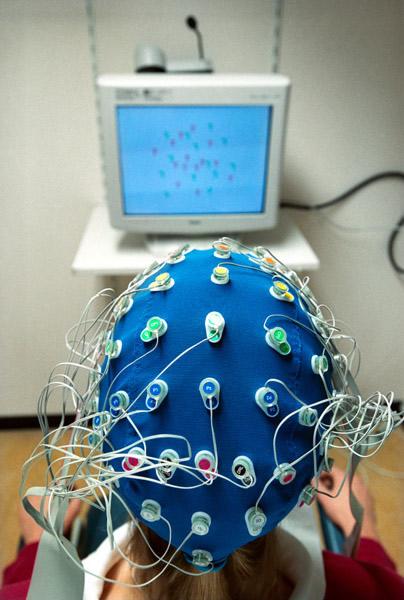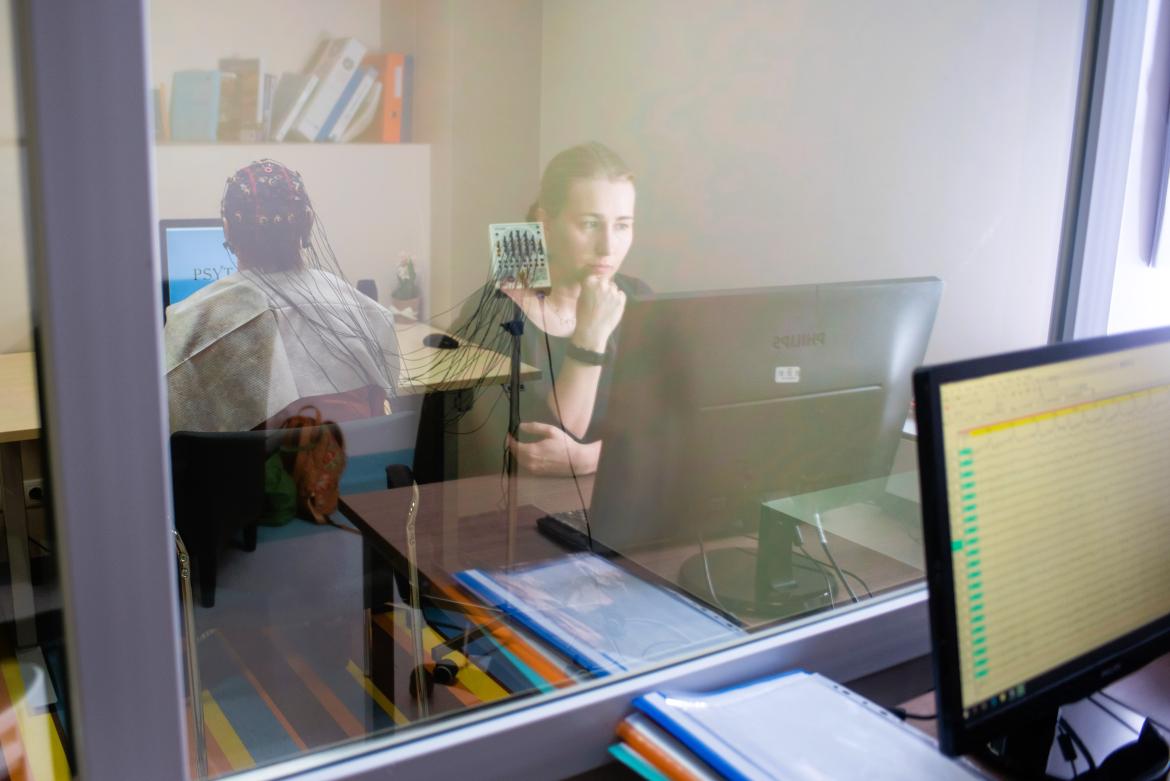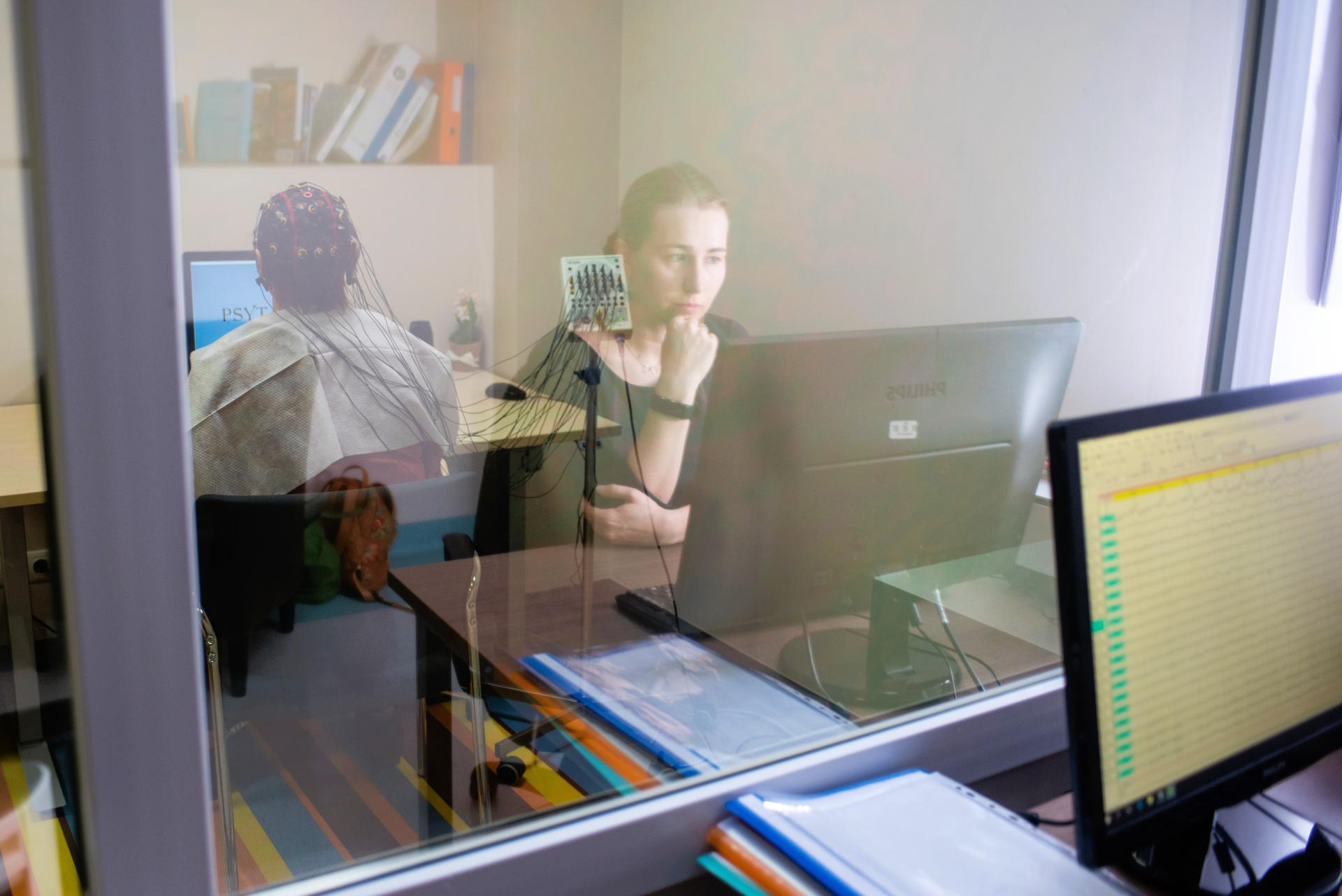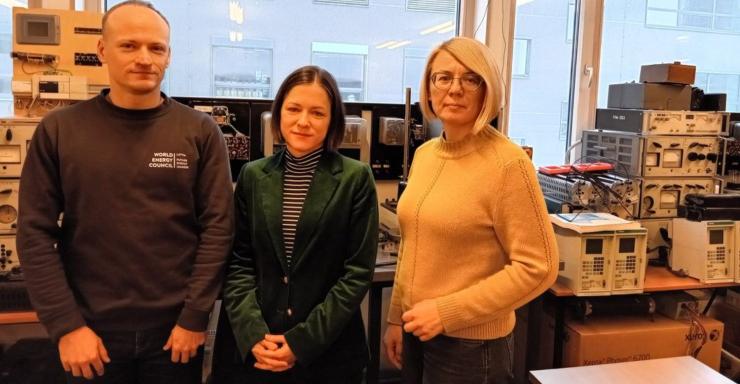As people age, their cognitive abilities, such as memory and attention, change. Sometimes these changes can be early indicators of more serious cognitive impairments, which can potentially lead to pathological conditions such as Alzheimer's disease. Early detection of cognitive impairments is particularly important, as it allows for timely intervention and support for at-risk groups.
The study is reported by Agnese Ušacka, Acting Lecturer at the Department of Health Psychology and Pedagogy at RSU, who is conducting the study together with colleagues Kristīne Šneideri (lead researcher), Ainārs Stepenas (project manager), Nauri Zdanovskis (lead researcher), Zani Anna Litauniece (research assistant) and Zigmunds Freibergas (research assistant).

Research goal – early detection of signs
The research is in the field of cognitive aging. In this project, we are not so much studying disorders (such as Alzheimer's disease) as we are studying participants with different levels of cognitive functioning, including those with diagnoses. The Modifiable Bio- and Lifestyle Markers for Predicting Cognitive Decline (MOBILE-COG) project uses a simple, non-invasive method to identify these early warning signs – measuring brain activity using electroencephalography (EEG).
Data from 50 participants have been analyzed so far, but data collection is ongoing, and results are expected in the summer. EEG involves placing sensors on the scalp to record the electrical activity of brain cells. During the EEG recording, study participants perform cognitive tasks that require attention. This method measures a specific electrical signal called the P300 wave.
Research shows that differences in the P300 wave – especially its amplitude and time interval – can distinguish healthy people from those with mild cognitive impairment.
People with cognitive impairment tend to have smaller and later P300 waves, indicating reduced brain energy and slower information processing.

From understanding to action
By identifying these subtle changes early, we hope to pave the way for more extensive cognitive testing and enable proactive measures to prevent further cognitive decline. This could include lifestyle changes, cognitive exercises, or other interventions to support brain health and improve quality of life for aging individuals.


